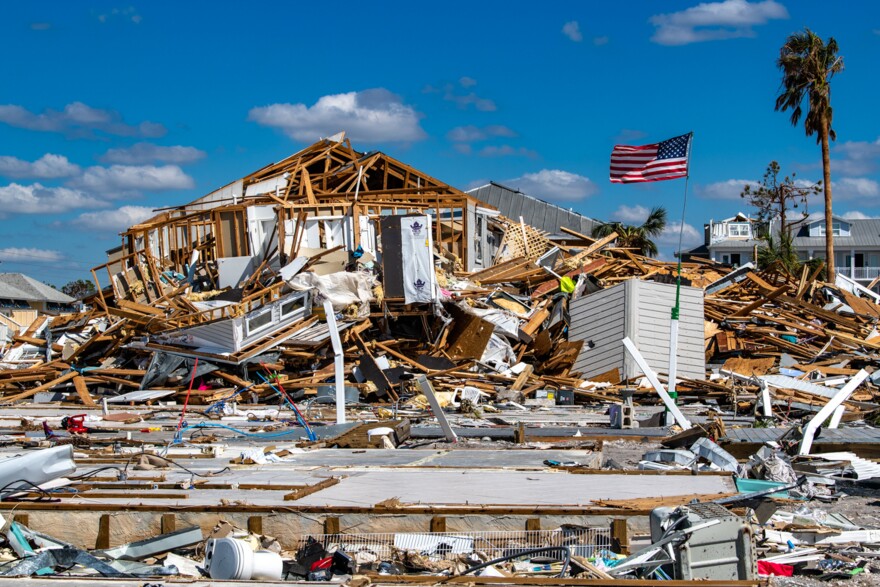Designing and fortifying military bases against the effects of climate change is not some far-off concept, it’s happening right now.
“This is actually a very important part of how the military looks at their readiness and their ability to do their mission,” said Dr. Matthew Schwartz, associate vice president of research at the University of West Florida.
Support Local Stories. Donate Here.
A group of military and climate experts will be discussing ideas at the Climate Security in Northwest Florida: Best Practices and Lessons Learned for Military Facility Resilience this Monday in downtown Pensacola. It will be moderated by Dr. Schwartz.
Damage from extreme weather events like hurricanes and flooding costs the U.S. military billions of dollars in damaged facilities and equipment. It also impedes readiness, training, and personnel.
The Department of Defense ranks Northwest Florida’s bases as among the most exposed to climate change in the country, and recent storms and flooding have exposed many of those weaknesses. Now, the Pentagon has ordered resiliency reviews at bases most at risk for climate damage.
“The great thing about this activity here in Northwest Florida is that we actually have had to go through and been resilient to some of these practices recently. Hurricane Sally and Hurricane Michael have both had very big effects in our region,” said Schwartz.
Dr. Schwartz points out that Tyndall Air Force Base, which is on the Gulf Coast between Panama City and Mexico Beach and sustained $5 billion in damage from Hurricane Michael, has become one of the best ongoing real-life laboratories when looking at creating climate resilient bases.
RELATED: Tyndall Air Force Base to be rebuilt as 'Air Base of the future'
“When there’s an event like Hurricane Michael and it really decimated an installation like Tyndall Air Force Base, the military knows they have to rebuild but they’re also very smart, and they want to do it in the best way possible” said Schwartz. “So, they invest in planning procedures that explore ‘what is the best way we can (rebuild) this installation, not just for next year, but for the next three or four or five decades? How does that tie in with the pentagon’s overall mission, and what do we need to do at the base level to be able to ensure our continuity of operations for today and tomorrow?’”
One of the speakers at Monday’s event is Retired Navy Captain Tim Kinsella, whose last assignment on active duty was as commanding officer of Naval Air Station Pensacola, where he led the installation through the devastation of Hurricane Sally while maintaining the installation’s operational viability. Under his leadership, NAS Pensacola was awarded the Navy’s Installation Excellence Award. Other members of the panel include Dr. Brian Crisher, an associate professor in the Department of Government at UWF, Dr. Haris Alibašić from the UWF department of Administration and Law, and Eric Christianson, a planner with the Emerald Coast Regional Council.
“Each of these folks brings specific knowledge about resilience, military installations and readiness as part of their working, day to day operations,” said Schwartz. “(We) mentioned Captain Kinsella, who of course has been literally on the ground dealing with these issues through hurricanes and other events. So, he’s bringing a wealth of knowledge and we’re so happy to have him.”
The Climate Security Tour event in Pensacola is 5:30 p.m. Monday at the Museum of Commerce in downtown Pensacola. Everyone is welcome to come and participate at no charge. Registration is suggested but not required.


